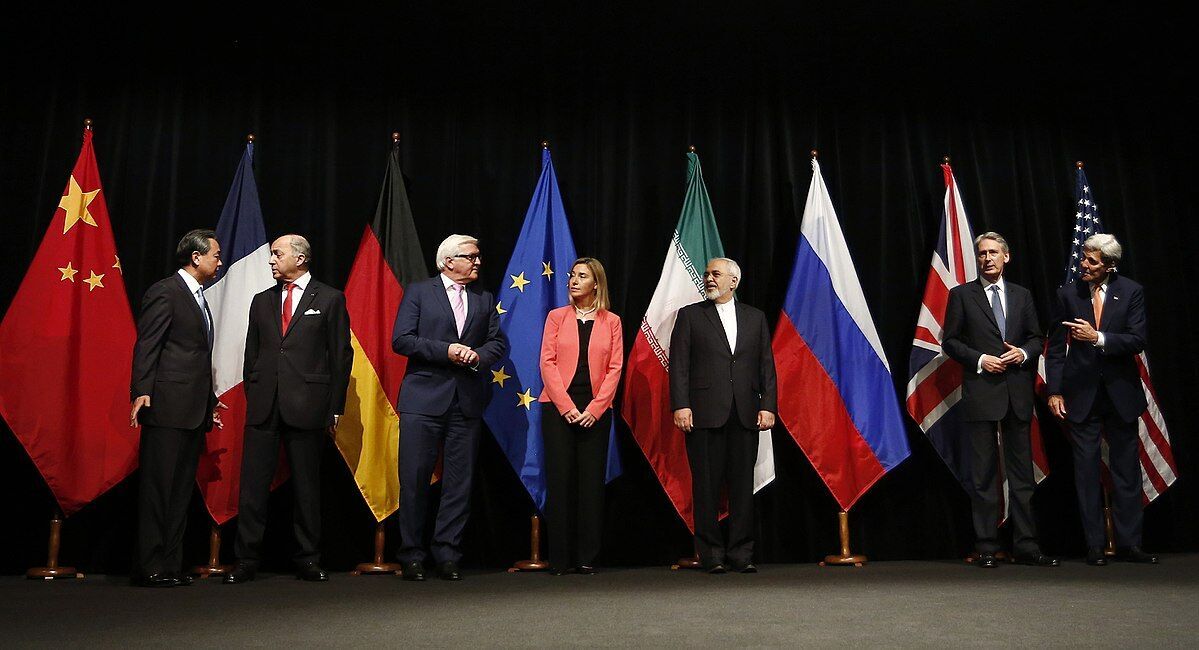ID :
575087
Sat, 09/05/2020 - 21:56
Auther :
Shortlink :
https://oananews.org//node/575087
The shortlink copeid
JCPOA, turning point in Iran's 42-year-old diplomacy

Tehran, Sept 5, IRNA – Since the 1979 Islamic Revolution, basis of foreign policy of the Islamic Republic of Iran has been constructive interaction on mutual respect with legitimate governments across the world; and the July 2015 nuclear deal is a turning point in Iran's diplomacy during the past four decades.
Iranian diplomacy over the past 42 years had ups and downs; meanwhile, signing the nuclear deal formally known as the Joint Comprehensive Plan of Action (JCPOA) during the early years of taking office by the incumbent government is the most important achievement gained by diplomacy.
Iran could reach the landmark agreement with the Western powers after years of efforts and intensive talks.
However, the US government under Donald Trump left the international deal in May, 2018, and embarked on creating major obstacles to implementation of the JCPOA by the other signatories to the JCPOA.
Insistence of other signatories of the deal on preserving the JCPOA proves importance of the landmark diplomatic achievement.
Despite the US renegade to the nuclear agreement, the Europeans insist on keeping the JCPOA alive because it can bring big advantages to them.
Also, in recent weeks, the Europeans via voting against the US anti-Iran resolution indicated their resolve to save the deal and stand up to the White House's unjust demands.
In the latest measure, the 16th meeting of the Joint Commission of the JCPOA was held in Vienna, Austria, on September 1 while the participants reaffirmed commitment to implementation of the deal.
After the Joint Commission meeting of the JCPOA, a statement was issued stressing that the US cannot start reimposing sanctions lifted by the UN Security Council Resolution 2231.
The UN Security Council Resolution 2231 (2015) urges full implementation of the JCPOA on the timetable set by the context of the Agreement and sets forth the next steps for the eventual removal of Security Council sanctions on Iran.
The JCPOA is part of the Resolution 2231, so the US is responsible to implement it according to the Security Council Resolution and the UN Charter, Iran's Ambassador and Permanent Representative to the United Nations Majid Takht Ravanchi told IRNA in mid-August.
Despite all those disagreements and criticism the US renegade, Washington still insists on continuing its anti-Iran actions as it has said will activate trigger mechanism and reimpose sanctions.
Abdou Abarry, Niger's UN ambassador who chairs the Security Council for September, has recently said that his opinion about "snapback" mechanism has not changed.
The US, as Abarry has reaffirmed, has no authority to start the snapback mechanism.
Far from Russia and China which have strongly opposed to the US measures, other members of the UNSC have stressed disagreement to invoke the snapback clause of the JCPOA.
The disagreements are due to Islamic Republic's right policies on establishment of peace and sustainable security worldwide based on the International Law.
Travel of Iranian President Hassan Rouhani to Italy and France in January 2016 was an historical event took place just few months after signing the JCPOA.
During Rouhani's visits to European countries, over 30 documents on agreement were signed, they were unprecedented and widely broadcast by world media.
To follow its successful policy, Iran presented two important proposals to the United Nations in 2013 and 2019 to add to its global credibility.
The Iranian President Hassan Rouhani addressing the 74th UNGA session on September 25, 2019, presented Hormuz Peace Endeavor HOPE initiative, calling for collective cooperation of the Persian Gulf coastal states to safeguard peace in the Persian Gulf, Sea of Oman and the Strait of Hormuz.
Rouhani called for a world without nuclear weapons in the UN meeting in 2013.
Although the United States could create some problems for implementation of the JCPOA, the landmark JCPOA is still alive due to Iran's constructive talks with Europeans and non-Europeans to keep it safe.
Following the world criticism over the US unilateral policies, Director General of International Atomic Energy Agency (IAEA) Rafael Grossi flew to Iran in August and said his Agency and Tehran are to start mutual effort to reach an agreement on Iran's peaceful nuclear activities.
Such efforts prove that the incumbent government follows successful policies as it has focused on constrictive talks with the international community.





